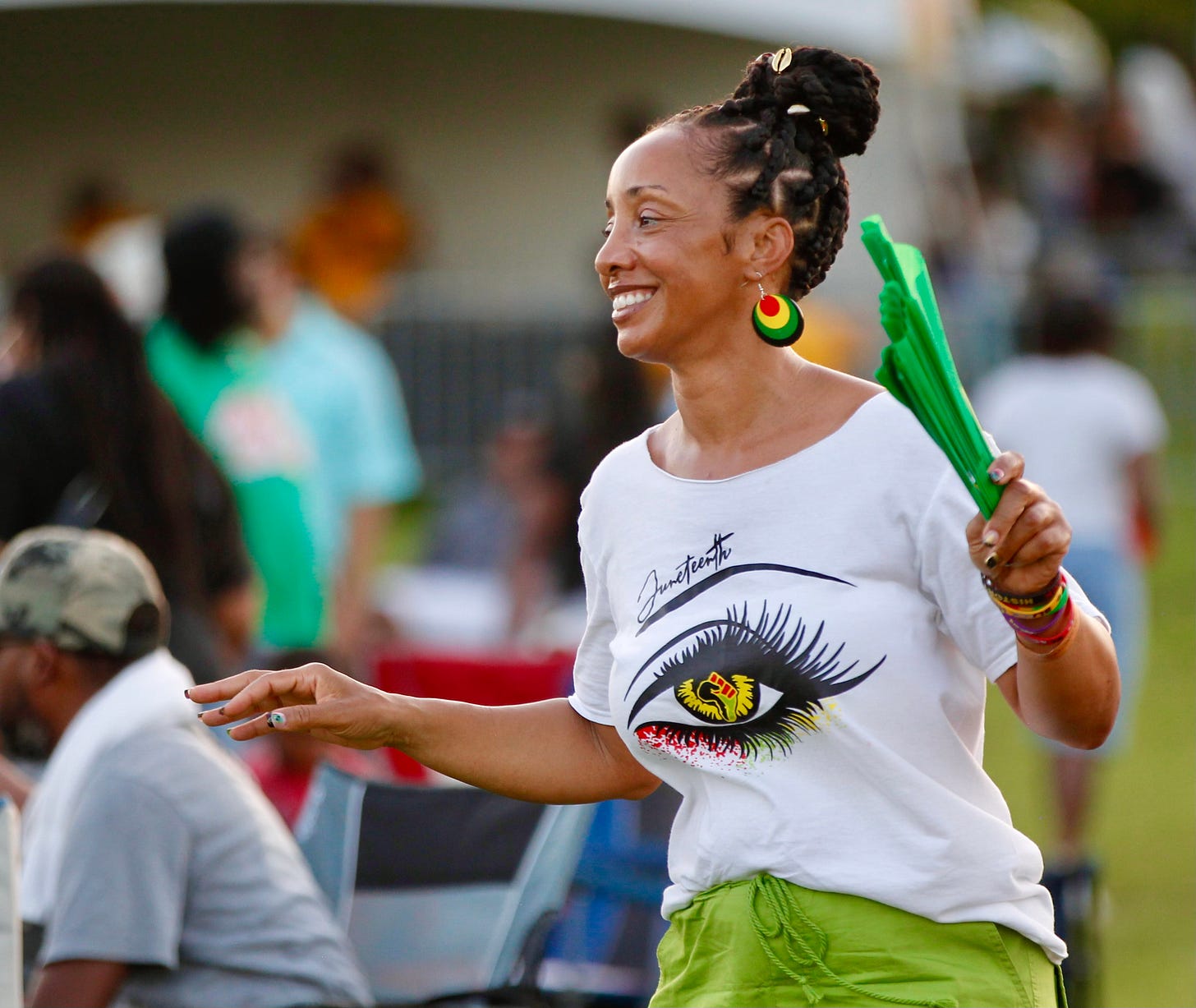
In the Black community, language can be resistance, and lately, a new greeting has gained power and popularity: “Happy 15 Days After Juneteenth.” And we say it deliberately on July 4th.
On the surface, it may read like a meme or punchline. But behind the smile is a deeper truth, one that forces this nation to confront its selective memory and its uncomfortable contradictions.
We say it because July 4th never belonged to us. When America declared its independence from Britain in 1776, for many of us, our ancestors were still in chains, bought, sold, and brutalized.
Black media matters—but it’s still chronically underfunded and ignored. If you believe in the power of independent Black journalism, now’s the time to invest. Become a paid subscriber and help us stay independent, unapologetic, and committed to telling the stories others won’t.
For us, there was no Liberty Bell ringing freedom. There were no fireworks, no cookouts, no anthems that spoke to our reality. The 4th of July was a celebration of White people’s freedom, while Black bodies remained bound.
That’s why Juneteenth hits different. It speaks to a freedom that came delayed, but it came.
June 19, 1865, marked the day enslaved people in Texas finally learned what should have been theirs two years prior: emancipation. For Black folks, that day—not July 4th—is our true Independence Day. And when we say “15 Days After Juneteenth,” we’re not just being clever. We’re reclaiming history, and we’re calling out American hypocrisy.
This isn’t about canceling July 4th or trying to whitewash White people’s history. It’s about centering a truth that America too often tries to bury beneath patriotic fanfare. While the nation waves its flags, many of us are still fighting for the freedom our ancestors were promised—freedom from systemic racism, police violence, underfunded schools, and economic oppression.
Juneteenth is a celebration, yes. But it’s also a mirror, forcing this country to look at itself and reckon with the gap between its ideals and its actions. That’s why you’ll see us gather in parks and community centers, wrapped in joy, storytelling, and Black excellence. And that’s why the phrase “15 Days After Juneteenth” carries the weight of remembrance and resistance.
This past July 4th, when the fireworks lit the sky, many of us were lighting candles and pouring libations. We honored our ancestors, uplifted our culture, celebrated the burning down of plantations, and told the truth—our truth. Because freedom delayed is still worth celebrating, and liberation on our terms is a holiday all its own.
Your support makes it possible for us to cover stories like this—not just as headlines, but as lived experiences that deserve care, depth, and context.
Here’s how you can help:
Become a paid subscriber. Your monthly support powers the kind of reporting our communities deserve.
Share this story with three friends. When we grow together, we hold systems accountable.
Refer others to BWST on Substack. Every new reader is a vote for Black-centered, independent journalism.
We tell these stories to connect, to inform, and to demand better. Because in Greenwood, every moment is layered with history, and every life is worth honoring.















Share this post